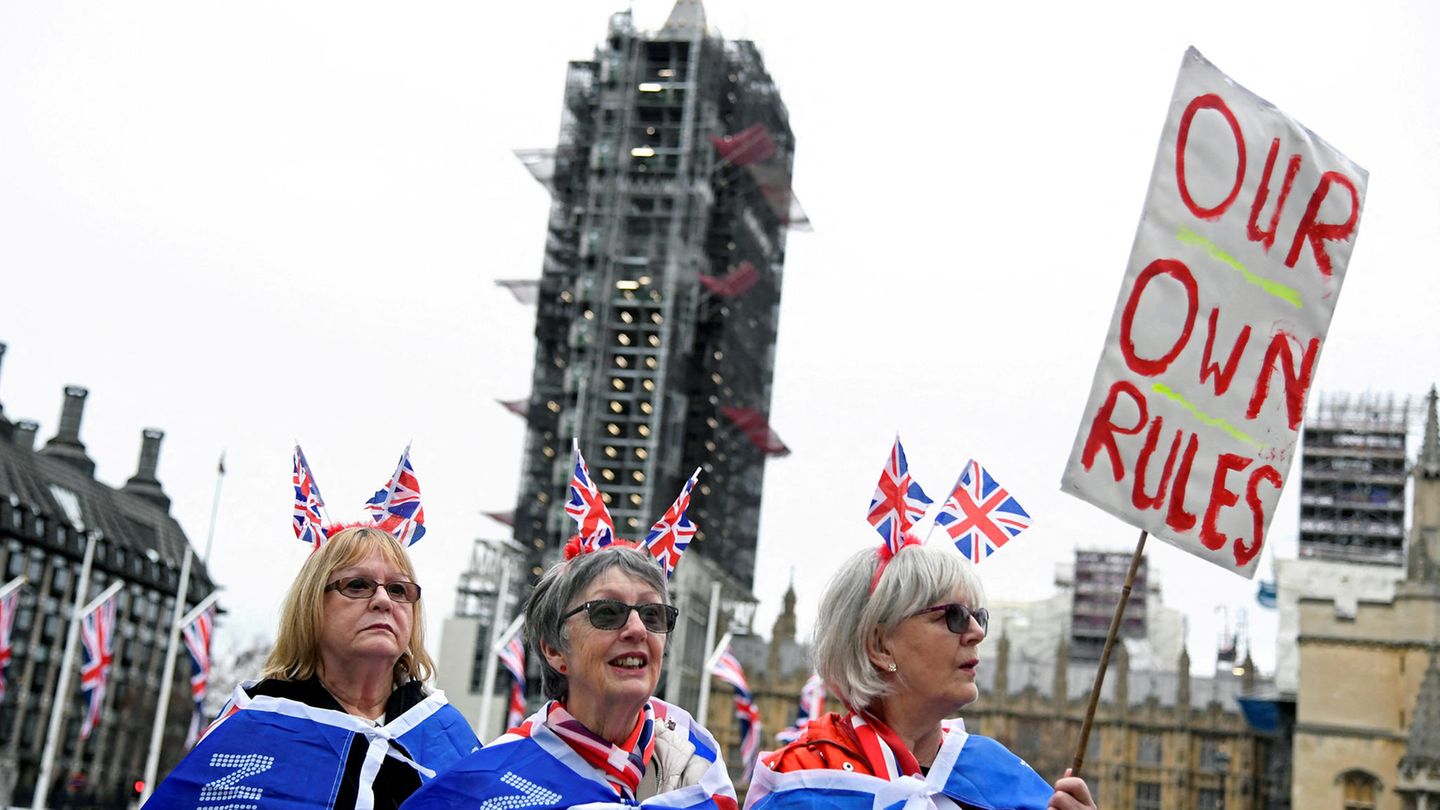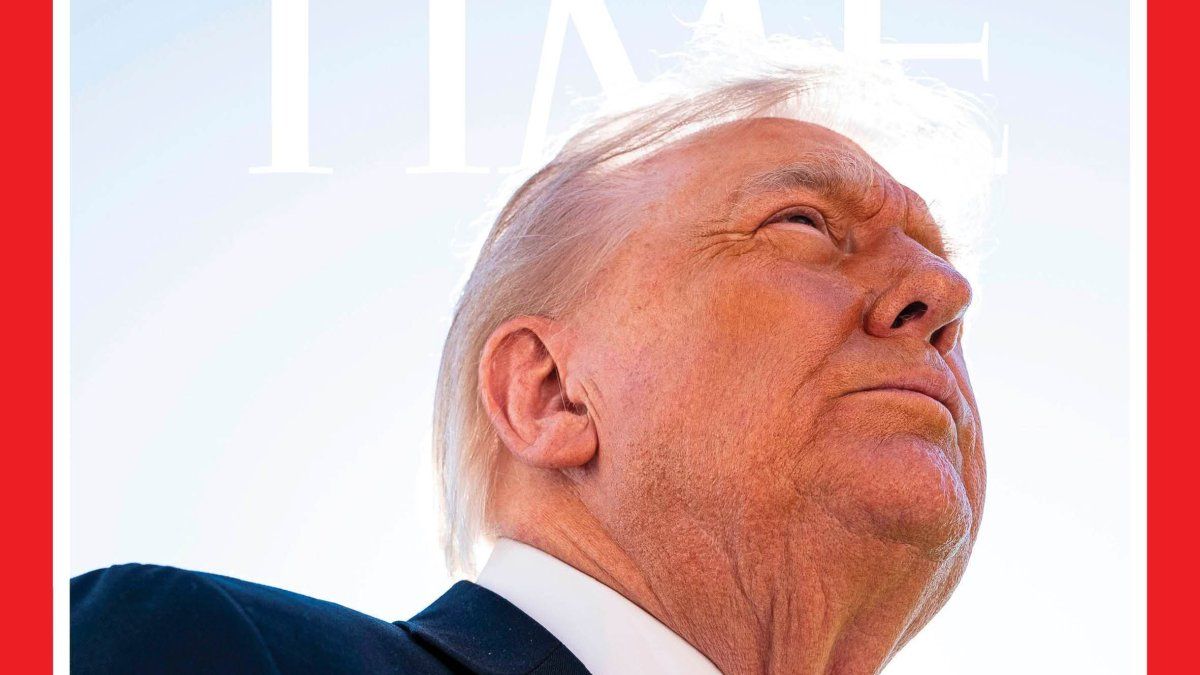Among other things, the consequences of Brexit are dragging down the British economy. Correcting the break with the continent is difficult, according to an expert. He also rules out an early return to the EU.
Exactly three years after Great Britain’s exit from the EU, which was extensively celebrated at the time, there is an economic hangover in the United Kingdom. This was ensured on Tuesday, among other things, by an economic forecast by the International Monetary Fund. Unlike in many other parts of the world, the British economy will not grow this year, but will shrink by 0.6 percent.
On January 31, 2020, Great Britain left the EU after 47 years. In the meantime, more and more people are beginning to realize that Brexit is not the recipe for economic success promised by its supporters. Polls show that a majority of Britons now not only consider Brexit to be a mistake, but are in favor of re-entry. A possible return to the EU is currently not an issue in the political debate.
The consequences of Brexit are causing problems for the economy
The country brings up the rear in the IMF economic forecast for the G7 countries in 2023 and performs worse than Russia, which has been sanctioned for its war of aggression against Ukraine. The background to the gloomy prospects is the government’s tax policy, the central bank’s tighter monetary policy and persistently high energy prices, which are putting a strain on household wallets, the IMF explained. According to experts, it is to a not inconsiderable extent the consequences of Brexit that are causing problems for the economy.
The IMF figures show that the UK is not immune to the pressures almost all developed economies are facing, UK Treasury Secretary Jeremy Hunt told Sky News. He referred to long-term forecasts that Great Britain should grow faster than Germany and Japan.
For the conservative government, the prognosis on the third anniversary of the exit from the EU is not very flattering. The weak growth is mainly due to the lack of labor, said the director of the Institute for Fiscal Studies, Paul Johnson, the BBC. One of the triggers was Brexit, which made immigration from the EU significantly more difficult. The exit from the EU also brought other problems that hampered economic growth. Among other things, the economy is suffering from political instability.
“Economic disaster” for Britain and the EU
According to the German Chamber of Industry and Commerce (DIHK), Brexit is an “economic disaster” for both Great Britain and the EU. For German companies there is considerable planning and legal uncertainty, said DIHK President Peter Adrian of the German Press Agency. “There is a risk of trade conflicts because Great Britain is distancing itself from the EU exit agreement.”
In particular, the British plans to deviate from EU rules, such as data protection or food, are a burden for German companies, said Adrian. This can also be observed in the trade figures: “While Great Britain was Germany’s third most important export market in 2016, the country slipped to 8th place in 2022.” In addition, it is generally expected that Great Britain will slip out of the top ten German trading partners for the first time in 2022. “There is a lot at stake for the economy on both sides of the Channel,” said Adrian.
Re-entry into the EU has not yet been a political issue
According to the British political scientist Anand Menon, a return of Great Britain to the EU is out of the question in the next 15 years. He sees no chance, said the head of the think tank “UK in a Changing Europe” of the dpa.
The Social Democratic Labor Party is clearly ahead of the Conservatives in polls. It is therefore considered likely that party leader Keir Starmer will replace incumbent Prime Minister Rishi Sunak as head of government after the 2024 election. In the past, Starmer has advocated moving away from Brexit, but is now only campaigning for improvements to the exit agreement.
Skiddaw House
Six kilometers walk to the nearest neighbor: Great Britain’s most remote house is said to cost 11 million euros
Menon believes that even closer rapprochement through additional agreements between the EU and a future Labor government would pose a problem. The EU will think: “Do we really want to sign a deal with these people if the conservatives come back in five years and tear everything up in the air?” said the professor at King’s College in London.
For Sunak, who primarily has an eye on the recovery of the economy, it would be difficult even for the relationship with Brussels to be eased. It was unclear whether he could prevail against his party’s Brexit supporters, said Menon. Speculation has it that Sunak’s predecessor, Boris Johnson, is just waiting for an opportunity to accuse the prime minister of betraying Brexit and pave the way back to the top of government.
Source: Stern




